PEOPLE
SECRETARIAT

Jonathan Crush
Jonathan Crush was raised in South Africa, Zimbabwe and Swaziland. After obtaining his first degree at Cambridge University, he moved to Canada and completed his M.A. at Wilfrid Laurier University and Ph.D. at Queen's University. Jonathan is a frequent commentator on issues of migration, food security and xenophobia in the Global South and has consulted for the IOM, ILO, UNDP, UNAIDS, UNESCO, CIDA-CIC, OECD and various African governments.

Maria Salamone
Maria Salamone is the Program Manager for the Hungry Cities Partnership, a SSHRC-funded global research and policy network focused on the relationships between rapid urbanization, migration and urban food systems in the Global South. In 2020-21, she played a major role in the development of a successful SSHRC Partnership Grant application which will scale up the work of the HCP to Ecuador, Ghana, Qatar and Singapore.

Zhenzhong Si
Dr. Zhenzhong Si is the Project Research Manager of the MiFOOD Project. He holds a PhD in Geography from the University of Waterloo. Through the Hungry Cities Partnership, Zhenzhong investigates the dynamics of urban food systems in Nanjing, China with a particular focus on the role of wet markets in urban food security and its interactions with modern food outlets, household food security status and policies for food provisioning. Zhenzhong also leads the SSHRC Partnership Development Grant project that studies agroecology's potential for achieving the SDGs, and the SSHRC-funded project on COVID-19's impacts on food security in China and the CIHR-funded project on assessing and mitigating impacts of COVID-19 on food security in marginalized communities in Canada, South Africa and Ecuador. He published papers in development and agrifood themed journals and co-authored the book Organic Food and Farming in China: Top-down and Bottom-up Ecological Initiatives.
PROJECT COORDINATION COMMITTEE

Bruce Frayne
Bruce is a Professor and Director of the School of Environment, Enterprise and Development. He is an Urban Planner and Geographer, and teaches in the International Development program. His research interests fall within the broad ambit of sustainable cities, and encompass the three related areas of human migration, urbanization and food security. In addition to leading the Sustainable Development Goals (SDG) Canadian Cities Index project, Bruce works in Sub-Saharan Africa and cities of the Global South.
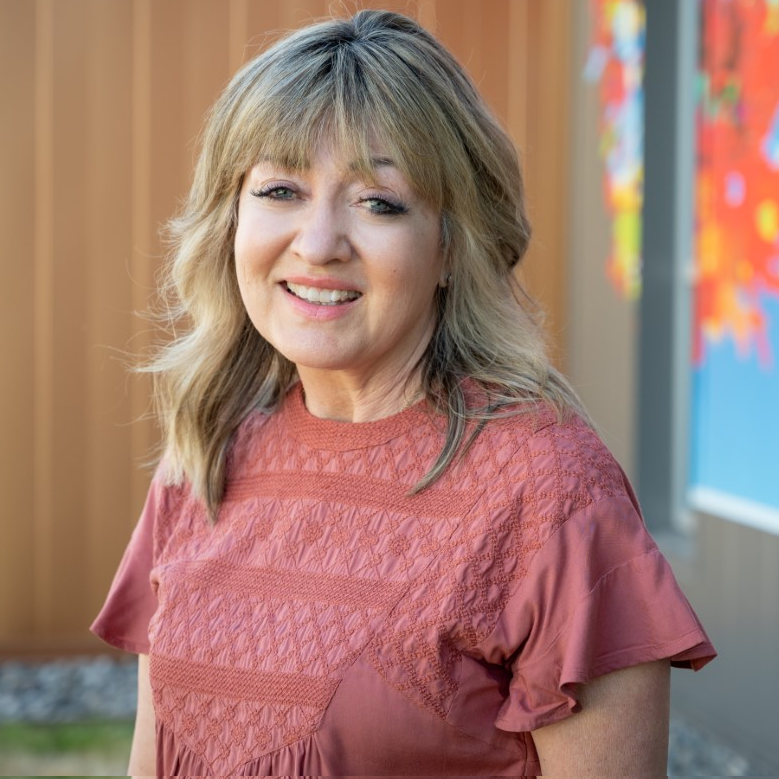
Cherie Enns
Cherie Enns is a passionate educator and urban planner focusing on spatial justice, child rights, human-centred design, food systems, placemaking, sustainable land use planning, climate change and humanitarian responses to facilitate the transformation to more equitable and inclusive communities. She is also a registered professional planner and a member of the Canadian Institute of Planners. Her Ph.D. is in Public Policy Analysis and Programme Management (IArdhi University, Tanzania) and Masters in Community and Regional Planning (UBC, Canada).
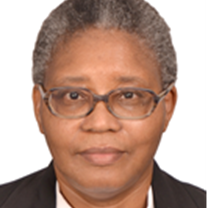
Inês Raimundo
Inês Raimundo is an Associate Professor of human geographer at Eduardo Mondlane University, Mozambique. She is a specialist on migration in Mozambique, including international and transborder dynamics and internal rural-urban mobilities and forced displacements from environmental disasters. In addition, her scholarship makes her a leading policy expert on linkages of food insecurity, gender, poverty, migration policy, and informality in Mozambique. Raimundo has published in Mozambique and internationally in these fields of expertise, where she has been involved in the last 20 years of research.
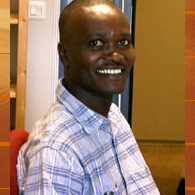
Samuel Owuor
Samuel Owuor is an urban geographer and Associate Professor of Geography and Environmental Studies in the Department of Geography, Population and Environmental Studies, University of Nairobi, Kenya. He holds a PhD in Human Geography from University of Amsterdam. He has, over the years, gained experience in scientific research and publication, teaching and supervision of graduate students. His research interests are in the fields of urban development and governance, urban poverty and livelihoods, urban food and nutrition security, and urban-rural linkages. He has been involved in the design and implementation of a number of funded collaborative and multi-disciplinary research projects. In particular, he has participated in Hungry Cities Partnership Project on informality, inclusive growth and food security in cities of the global south; Nourishing Spaces Project on urban food systems governance for non-communicable diseases prevention; and AgriFoSe2030 Project on urban food systems governance in Kenya.
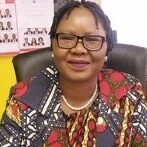
Ndeyapo Nickanor
Ndeyapo Nickanor is an Associate Professor in the Department of Computing, Mathematical and Statistical Science in the School of Science as well as the Executive Dean of the Faculty of Agriculture, Engineering and Natural Science at the University of Namibia. She is a research affiliate of the African Food Security Urban Network (AFSUN) which continues to extensively research on food security in Southern Africa, as well as the Hungry Cities Partnership (HCP). She is also working with the African Centre for Cities at the University of Cape Town as part of the IDRC funded Nourishing Spaces Project. Her research interest continues to grow in the food security area.
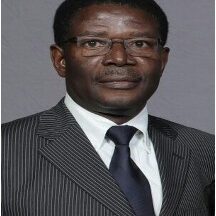
Daniel Tevera
Daniel Tevera is an Extraordinary Professor in the Department of Geography, Environmental Studies and Tourism at the University of the Western Cape (South Africa) and he is a former chairman of the department. His research focuses on resilience, but it is the domain of urban food systems, migrant spaces and urban informality that his recent work has focused on. He has published several books and many influential articles on migration and migrants, urban food security, waste management and environmental security. He has extensive research experience in southern Africa (especially, Zimbabwe, South Africa, Eswatini, Botswana, Lesotho and Namibia). He has participated in the Southern African Migration Programme (a consortium of Canadian and African researchers) as national team leader. He was part of the management team of the African Food Security Urban Network, a research, policy and capacity-building network of Canadian and African universities, NGOs and municipal governance networks. He is the inaugural Programme Coordinator of the Leadership for Environment and Development in Southern Africa (LEAD-SA).
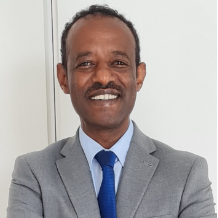
Mulugeta Dinbabo
Mulugeta Dinbabo, is a Professor of Development Studies at the Institute for Social Development, University of the Western Cape. He is an established researcher whose research trajectories have been influenced by the critical role of Migration Studies and Postgraduate Teaching. Professor Dinbabo has supervised and graduated more than 50 Master's and PhD degrees and built a stronger research ethic and published extensively in local and international journals. So far he has produced over 40 publications in peer-reviewed or refereed local and international journals. He is also the founder and Chief Editor of the African Human Mobility Review (AHMR), which is an accredited journal by the Department of Higher Education and Training (DHET). AHMR is an interdisciplinary peer-reviewed on-line journal created to encourage and facilitate the study of all aspects (socio-economic, political, legislative and developmental) of Human Mobility in Africa.
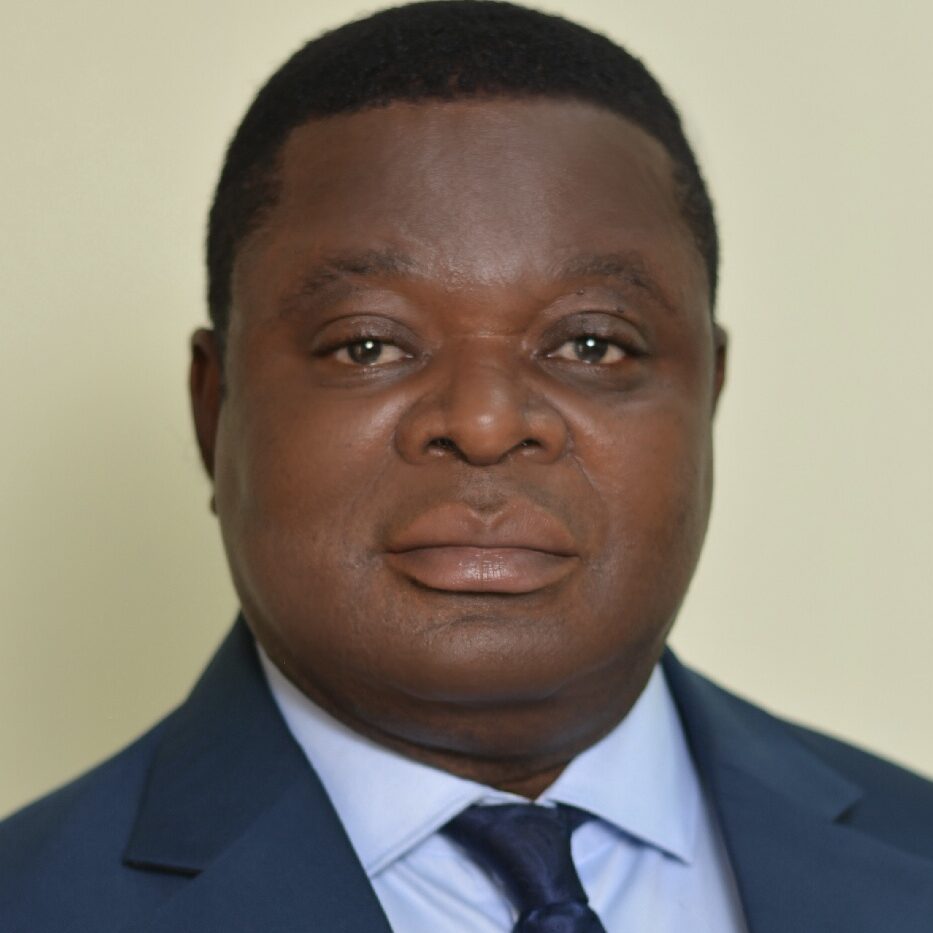
Peter Quartey
Peter Quartey is a Professor of Economics with more than 18 years expertise, mainly in development finance, private sector development, monetary and financial sector development with senior-level roles at practitioner, policy and consulting services. He holds a PhD in Development Economics from the University of Manchester (UK) and MSc in Quantitative Development Economics from the University of Warwick (UK). He also holds a Master of Philosophy and a Bachelor of Arts Degrees in Economics from the University of Ghana. He has enormous experience in strategic management and currently serves as a Board Member of Agricultural Development Bank, and currently the Vice Board Chairman, The Hunger Project (Ghana). He is also a Board Member and Finance Chair of the Regional Network of Agricultural Research Institutes (ReNAPRI). He is currently the Executive Director of Startrite Montessori School Ltd and the Director of the Institute of Statistical, Social and Economic Research (ISSER), University of Ghana. He has held other positions such as: Head, Department of Economics (University of Ghana), Deputy Director, Centre for Migration Studies (University of Ghana), Board Chairman, University of Ghana Credit Union, Board Member of National Population Council. He is a member of African Economic Research Consortium and the Canadian Economics Association. He has held Visiting Scholar positions at the International Monetary Fund (IMF), Washington DC in the US and the Brookings Institution, African Growth Centre, Washington USA as well as Keele University (UK). He is an astute academic with very high citation index associated with high media engagement and very active involvement in national discourse.
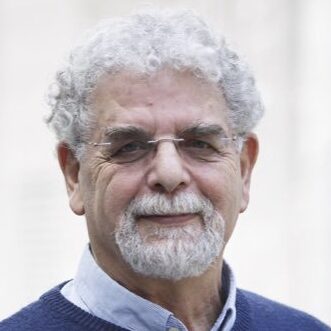
Ray Jureidini
Dr Ray Jureidini is Professor of migration ethics and human rights since 2014 at the Center for Islamic Legislation and Ethics (CILE) in the College of Islamic Studies at Hamad Bin Khalifa University, Doha, Qatar. His human and labor rights-based research and activism centers on migrant labor exploitation, human trafficking, racism, debt bondage, labour recruitment corruption and slavery-like practices in the Middle East. He recently published a co-edited book (with Said Hassan) titled Migration and Islamic Ethics: Issues of Residence, Naturalization and Citizenship by Brill Publishers in the Netherlands. His last funded project was an assessment of the Wage Protection System in Qatar for the Qatar Ministry of Administrative Development, Labour and Social Affairs (MADLSA), managed by the Doha Project Office of the International Labour Organization (ILO). Professor Jureidini is a consultant and advisor on refugee issues, labour recruitment, labour supply chain evaluations and migrant labour reform advocacy.
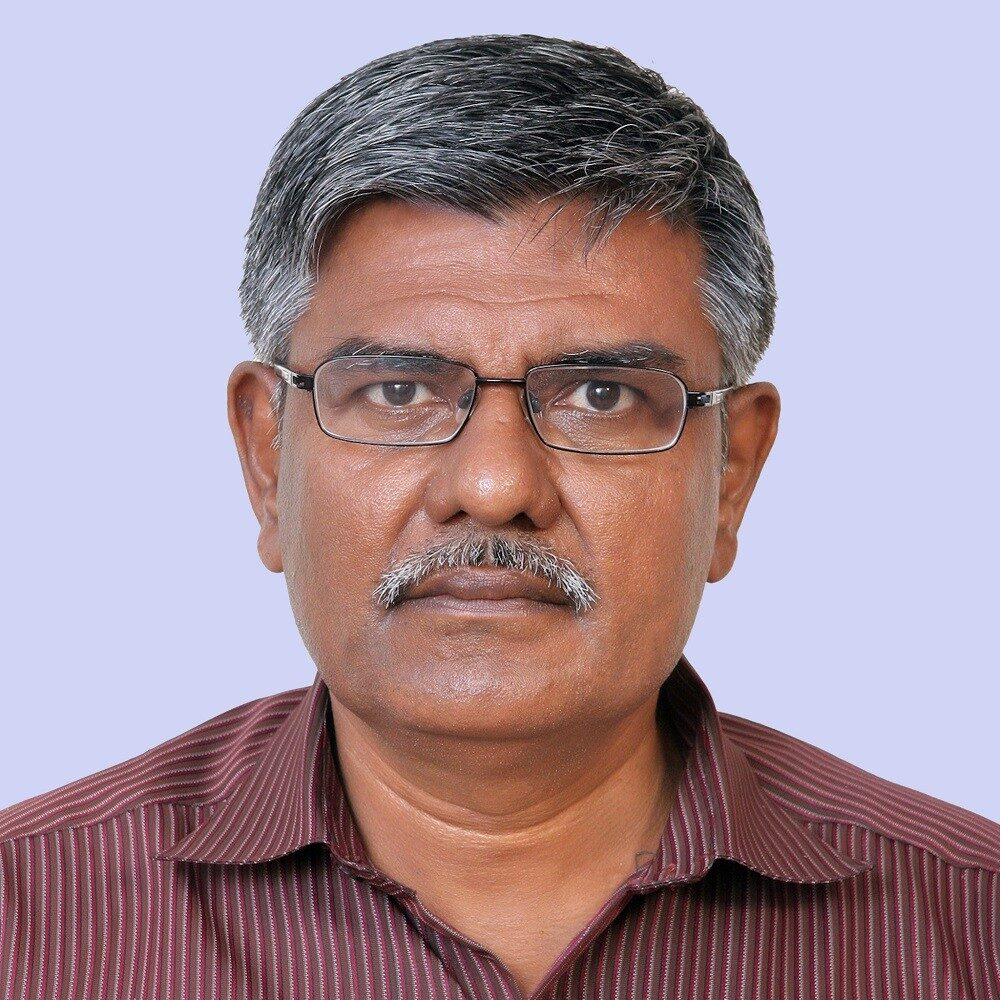
Irudaya Rajan Sebastian
S. Irudaya Rajan was a Former Professor at the Centre for Development Studies (CDS), Kerala (close 40 years of post-graduate experience) Currently, he is the chair of the KNOMAD (The Global Knowledge Partnership on Migration and Development,)World Bank working group on internal migration and urbanization. He is one of the expert committee members to advise the Government of Kerala on Covid-19. He has published in international journals on social, economic, demographic, psychological and political implications of migration on individuals, community, economy and society. He is the editor of the annual series India Migration Report since 2010 and South Asia Migration Report since 2017 published by Routledge. Founder Editor in Chief, Migration and Devleopment (Taylor and Francis).
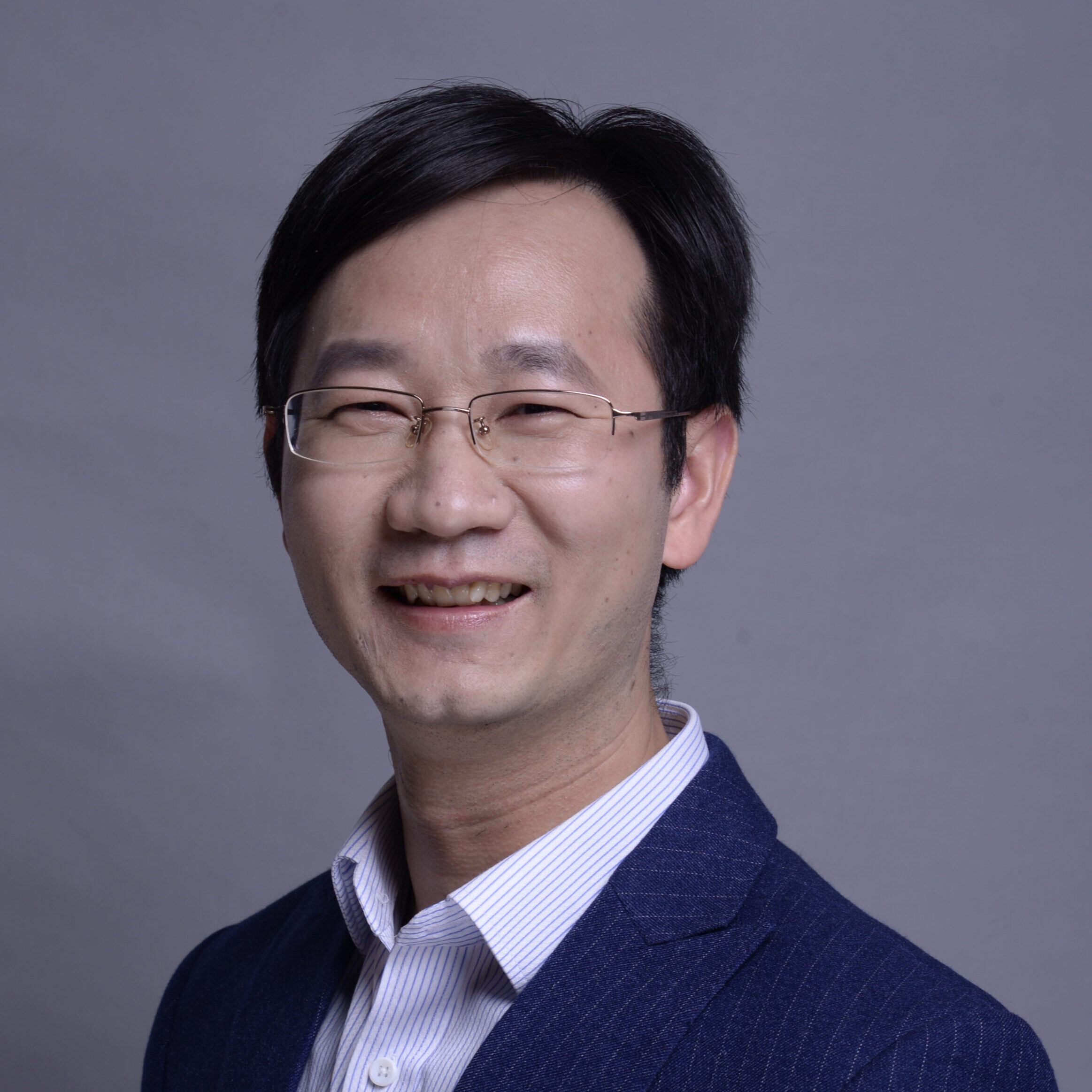
Taiyang Zhong
Dr. Taiyang Zhong received his Ph.D from Nanjing University in 2007. He is Professor at the School of Geographic and Oceanographic Sciences in Nanjing University in Nanjing, China. His research interests are China's land use policy and food geography.
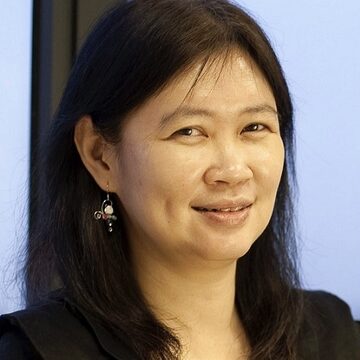
Brenda Yeoh Saw Ai
Brenda S.A. Yeoh FBA is Raffles Professor of Social Sciences at the National University of Singapore (NUS) and Research Leader of the Asian Migration Cluster at the Asia Research Institute, NUS. Professor Yeoh made important contributions to the field of migration and transnationalism studies and was awarded the Vautrin Lud Prize for outstanding achievements in Geography in 2021. Her work is distinctly Asia-focused while also significant for theory-building more generally. She is widely recognised for her research leadership in three areas: migration-led diversification, cosmopolitanism and spatial politics; human aspiration, care migration and social reproduction among migrant households in Southeast Asia; migration infrastructures and transnational mobility of migrant workers at various skill levels. She has published widely on these topics and her recent books include Handbook of Asian Migrations (Routledge, 2018 with Gracia Liu-Farrer); Student Mobilities and International Education in Asia: Emotional Geographies of Knowledge Spaces (Palgrave Macmillan, 2019 with R.K. Sidhu and K.C. Ho) and Handbook of Transnationalism (Edward Elgar, 2022 with F.L. Collins).
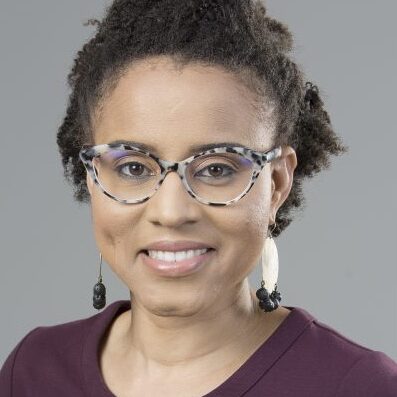
Natalie Dietrich Jones
Natalie Dietrich Jones' professional experience has been in the field of development in Jamaica and other Caribbean spaces. Outside of academia, she has worked in the local and international public sector. Most recently, she was employed with the Office of the United Nations Resident Coordinator for Barbados and the Organization of Eastern Caribbean States, where she assisted with the development of a framework for cooperation between the United Nations System and the Caribbean. Natalie Dietrich Jones enjoys teaching and is passionate about student development. Her research interests include Migration and Border studies, Qualitative research, and Critical Realist methodology. Prior to joining SALISES Natalie taught a number of courses in International Relations and Political Science within the Department of Government at UWI, Mona.
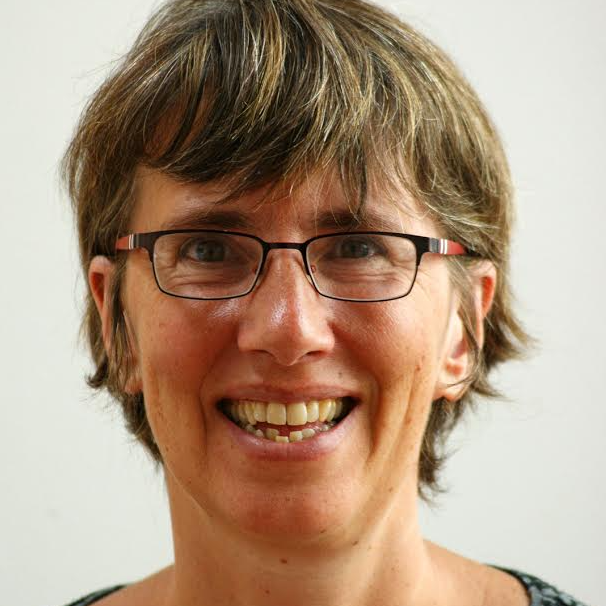
Guenola Capron
Dr. Guénola Capron obtained her PhD in geography and planning from the University of Toulouse-2 le Mirail in 1996. She worked at the CNRS in France, then at the Center for Mexican and Central American Studies (CEMCA) in Mexico City and since 2010 she is a teacher and researcher in the department of sociology at the Autonomous Metropolitan University (UAM) of Azcapotzalco. Her research work focuses on the transformation of urban public space in the context of the rising problem of insecurity in Latin America, but also studies other objects such as daily mobility and, recently, food systems. Since 2016 she has been part of the Hungry Cities Partnership and has been responsible for monitoring the project by the Mexican side. Between 2018 and 2021 she has been invited by the University of Toulouse Jean-Jaurès in France.

Salomon Gonzalez
Salomon Gonzalez Arellano holds a PhD in Regional Planning from Laval University, Quebec. His research focuses on urban geography, urban design, segregation, accessibility, and mobility. He is interested in the representation and spatio-temporal analysis of social processes, in decision-making methods from the perspective of Territorial Intelligence. He is currently a researcher and professor at the UAM-Cuajimalpa in Mexico City in the Department of Social Sciences, and a member of the Laboratory for Socio-territorial Analysis (LAST). Salomón González is coordinator of the Urban Form Studies Network (REFU) and partner of the Hungry Cities Partnership, co-founder of the International Research Network "Villes du Futur" funded by CNRS-France (2020-2029) and coordinator of the research project "Cities in Transition" financed by CONACYT.
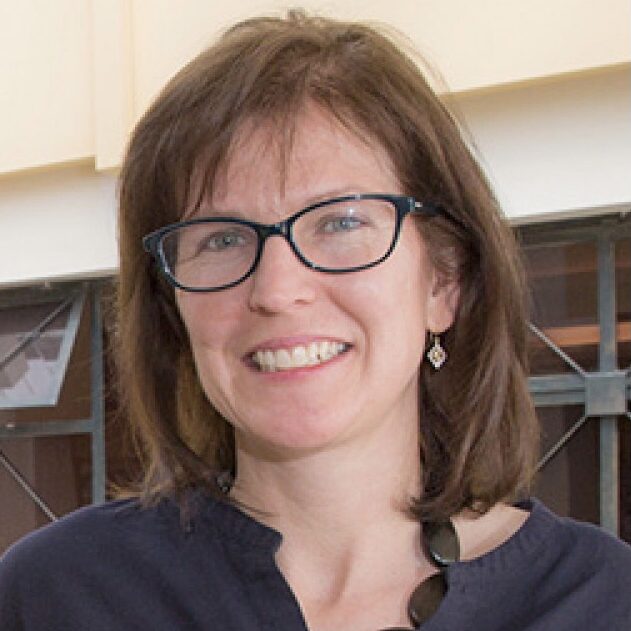
Cheryl Martens
POST-DOCTORAL FELLOWS
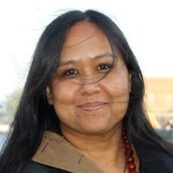
Sujata Ramachandran
Email: [email protected]
Dr. Sujata Ramachandran is a Postdoctoral Research Fellow at the Balsillie School of International Affairs with the SSHRC-funded MiFOOD Project. She received her PhD in Human Geography from Wilfrid Laurier University. Sujata has extensive experience studying various aspects of migration in Canada, Southern Africa and South Asia. Her research interests include migration and development, migrant integration, and migration governance. As part of her postdoctoral research, Sujata will conduct a study on South-South migration to India for the MiFOOD Project.
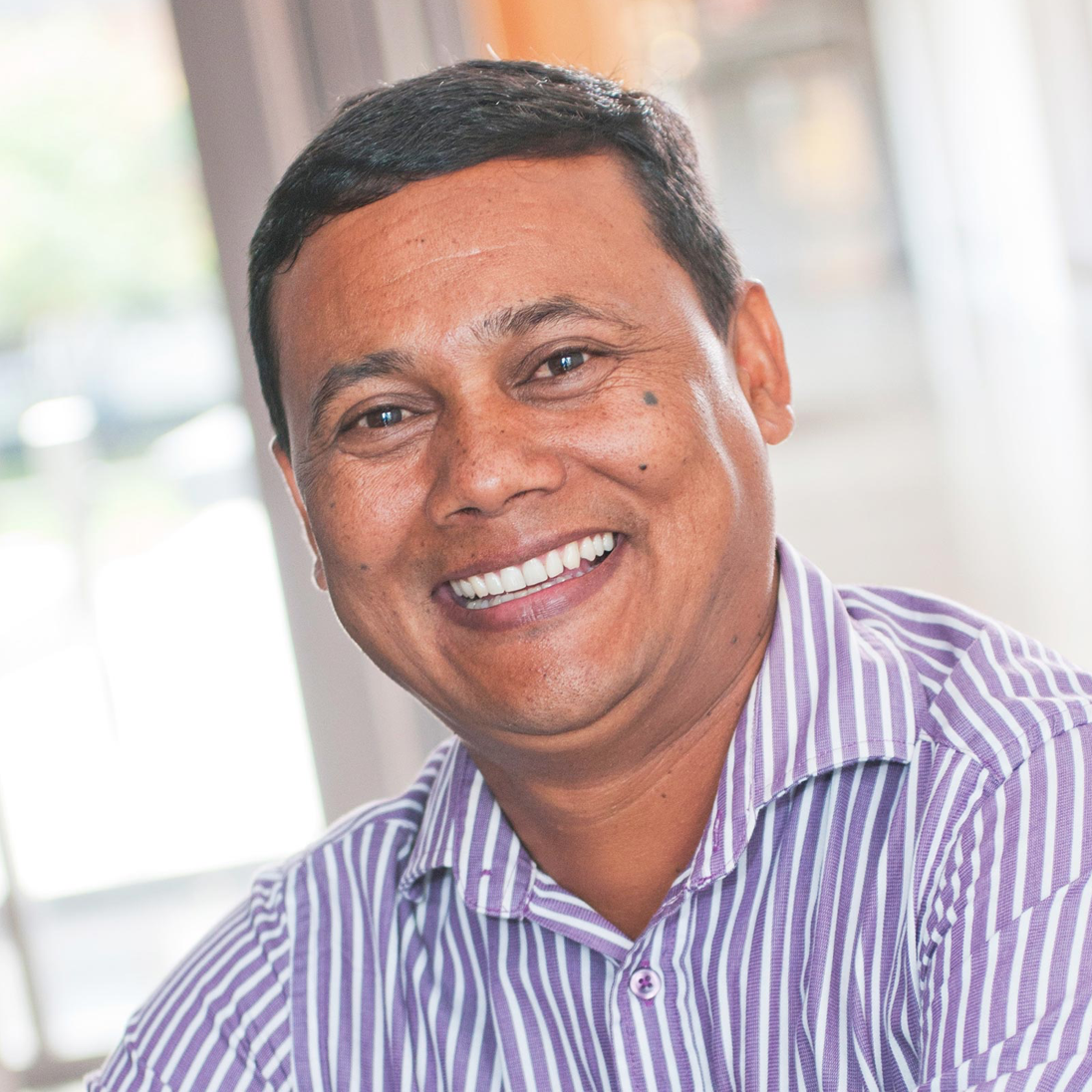
Hari KC
Email: [email protected]
Hari KC is a Postdoctoral Fellow in the International Migrant Research Centre at the School of International Policy and Governance at the Balsillie of School of International Affairs, Wilfrid Laurier University where he also works as a Contract Teaching Faculty. Hari has completed a PhD in Global Governance from the Balsillie School of International Affairs, Wilfrid Laurier University. His doctoral dissertation examines Nepal’s labour migration governance from a gender lens with a focus on Nepali women migrant domestic workers in the Arabian Gulf countries. His research broadly looks at South-South labour migration (with a regional focus on South Asia), migration governance, and social justice. In the past, Hari has worked, in various roles, for the BBC Media Action, Embassy of India, Carter Centre, and Tribhuvan University in Kathmandu, Nepal. Hari holds two master’s degrees in English from the University of Waterloo (Canada) and Tribhuvan University (Nepal), and also a master’s degree in Peace and Conflict Studies from Conrad Grebel University College (Canada).
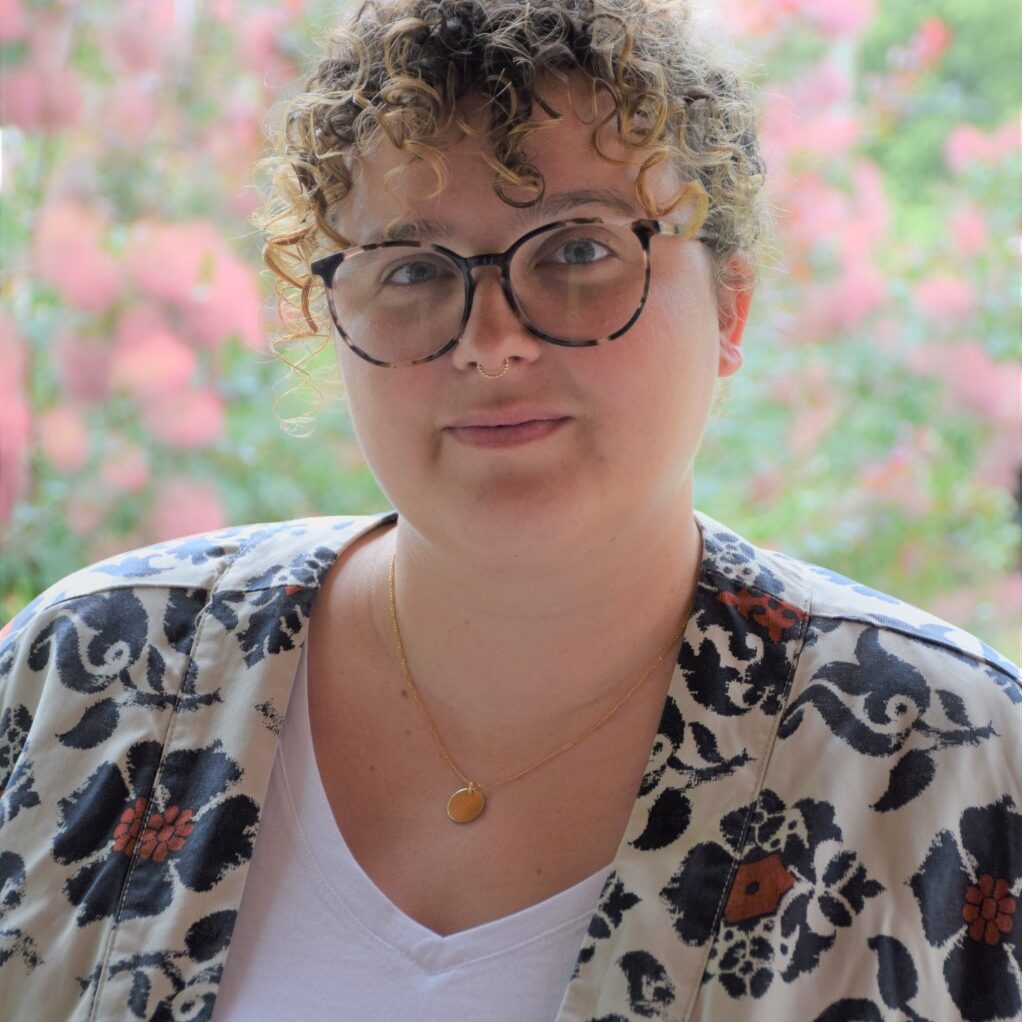
Rosalind Ragetlie
Email: [email protected]
Dr. Rosalind Ragetlie is a SSHRC postdoctoral fellow working in the MiFOOD project. Her research investigates gender, migration, and food insecurity in multi-local migrant households in Benin. Focused on the multi-local household, Dr. Ragetlie’s research contributes to the understudied area of gender and food security in households that exist in the complex space between urban and rural contexts, connected through dynamic flows of migration and remittances. Dr. Ragetlie holds a Ph.D. in geography from Western University. Her postdoctoral research examined food insecurity and gender among smallholder farmers in northwestern Benin. Her Ph.D. research examined how gender shapes food insecurity within the agrarian household. Dr. Ragetlie has several years of teaching experience at Western University and an extensive peer-reviewed publication record. She has also worked as a research consultant with the International Centre for Agricultural Research in Dry Areas (ICARDA), and in Middle East Development Assistance at Global Affairs Canada.

Sean Sithole
Email: [email protected]
Dr. Sean T. Sithole is a post-doctoral research fellow at the Institute for Social Development, Faculty of Economic and Management Sciences, University of the Western Cape. His recent work as a post-doctoral researcher is on a Canadian Institutes of Health Research (CIHR) funded project on the COVID-19 pandemic, food security and migration. The project is part of the Social Sciences and Humanities Research Council of Canada (SSHRC) funded MiFOOD (migration and food) network research projects. He is also involved in post-graduate lecturing and supervision. Dr. Sithole has researched and participated in events on migration, remittances, food security, census, civil registration, and vital statistics with the support from several organisations, including Scalabrini Institute for Human Mobility in Africa (SIHMA), Statistics South Africa (Stats SA), United Nations Economic Commission for Africa (UNECA), United Nations Population Fund (UNFPA) and the European Commission. He has served on the Executive committee of the Young African Statisticians Association and was formerly the Country Coordinator for the Zimbabwe Chapter under Statistics South Africa’s African Young Statisticians ISIbalo capacity building programme. Dr. Sithole holds Doctoral (PhD) and Master’s degrees in Development Studies from the Faculty of Economic and Management Sciences, University of the Western Cape (UWC), Digital Marketing and Social Media Marketing certificate courses from the University of Cape Town (UCT), and Special Honours and BA degrees from the University of Zimbabwe (UZ). His research interests include digital remittances, mobile transfers, social media and migrant networks, international migration and urban food security nexus, information communication technology (ICT) and development in the global South.
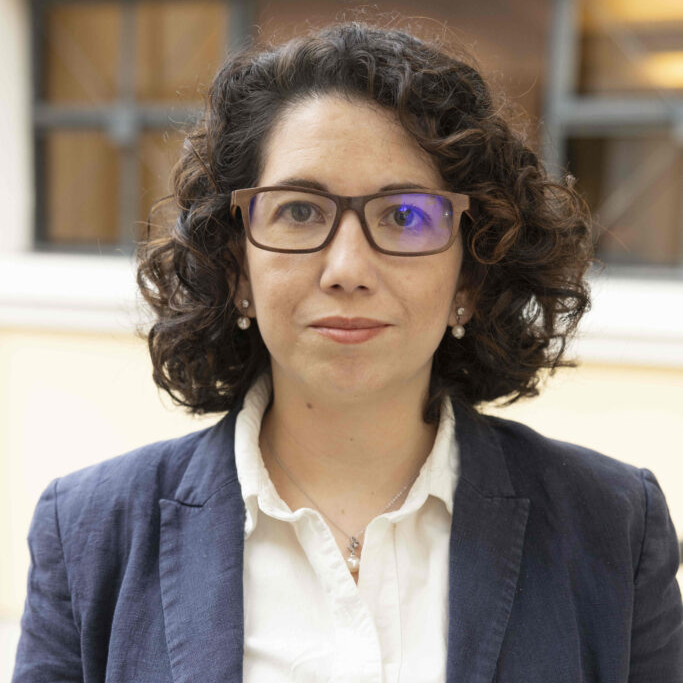
Mercedes Eguiguren
Email: [email protected]
Mercedes Eguiguren is currently a Postdoctoral Researcher at the Institute for Advanced Studies on Inequalities, at Universidad San Francisco de Quito (Ecuador) and a Visiting Researcher at the Balsillie School of International Affairs, working on the MiFOOD Project. Her research interests focus on the relationships between mobility, socio-spatial inequalities and the subjective experience of migration. She has researched and published on the links between international and internal migration, aspirations and social imaginaries as drivers of migration, the migration-development nexus, the contemporary history of Ecuadorian migration, and migration policy and political narratives. She serves as the co-chair of LASA’s Ecuadorian Studies Section, 2022 – 2024.
GRADUATE STUDENTS

Jeremy Wagner
Jeremy Wagner is a PhD Candidate and Doctoral Fellow in the Global Governance program at the Balsillie School of International Affairs. Jeremy's research interests include corporate food retailing expansion in sub-Saharan Africa and the interactions between ‘formal’ and ‘informal’ food systems. Specifically, Jeremy is revisiting the supermarket revolution hypothesis within the context of Nairobi, Kenya and exploring the extent to which supermarkets are reshaping the food retailing landscape and influencing food security.
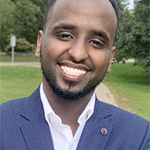
Zack Ahmed
Zack Ahmed is a PhD candidate in the Global Governance program at the Balsillie School of International Affairs where he focuses his research on the south-south migration and food (in)security nexus. Zack completed the Master of International Public Policy Program at WLU in the 2020-2021 academic year where his interest in food security grew through a research project he completed on the impact of COVID-19 on women along the food supply chain in the global South. Zack is currently working on two projects: 1) a SSHRC funded research project that asses Somali migrant households’ food security situation in Nairobi; and 2) a CIHR funded research that aims to assess the household food security of refugees from Somalia in the Kitchener-Waterloo region.

Bernard Owusu
Bernard Owusu is a PhD student at Wilfrid Laurier University Department of Geography. His research interests include migration and urbanization, food security, and resource sustainability. Bernard holds an MA in Geography from the Memorial University of Newfoundland and BA from the University of Ghana, Legon. His current study explores migration in the Global South, particularly international migration to and from Ghana and its crucial links with food security.

Jennifer Kandjii
Kandjii holds a master's degree (with distinction) in forced migration and human rights from the University of East London in the United Kingdom, as well as a bachelor's degree in chemistry and molecular biology from the University of Namibia. She recently defended her Ph.D. in Global Governance at the University of Waterloo's Balsillie School of International Affairs in Waterloo, Ontario. As a PhD candidate at the Balsillie School of International Affairs (BSIA), along with a fellow student, she galvanized the BSIA to create a space for discussion on how to deconstruct oppressive and discriminatory systems, resulting in the formation of an anti-oppression and equity committee.
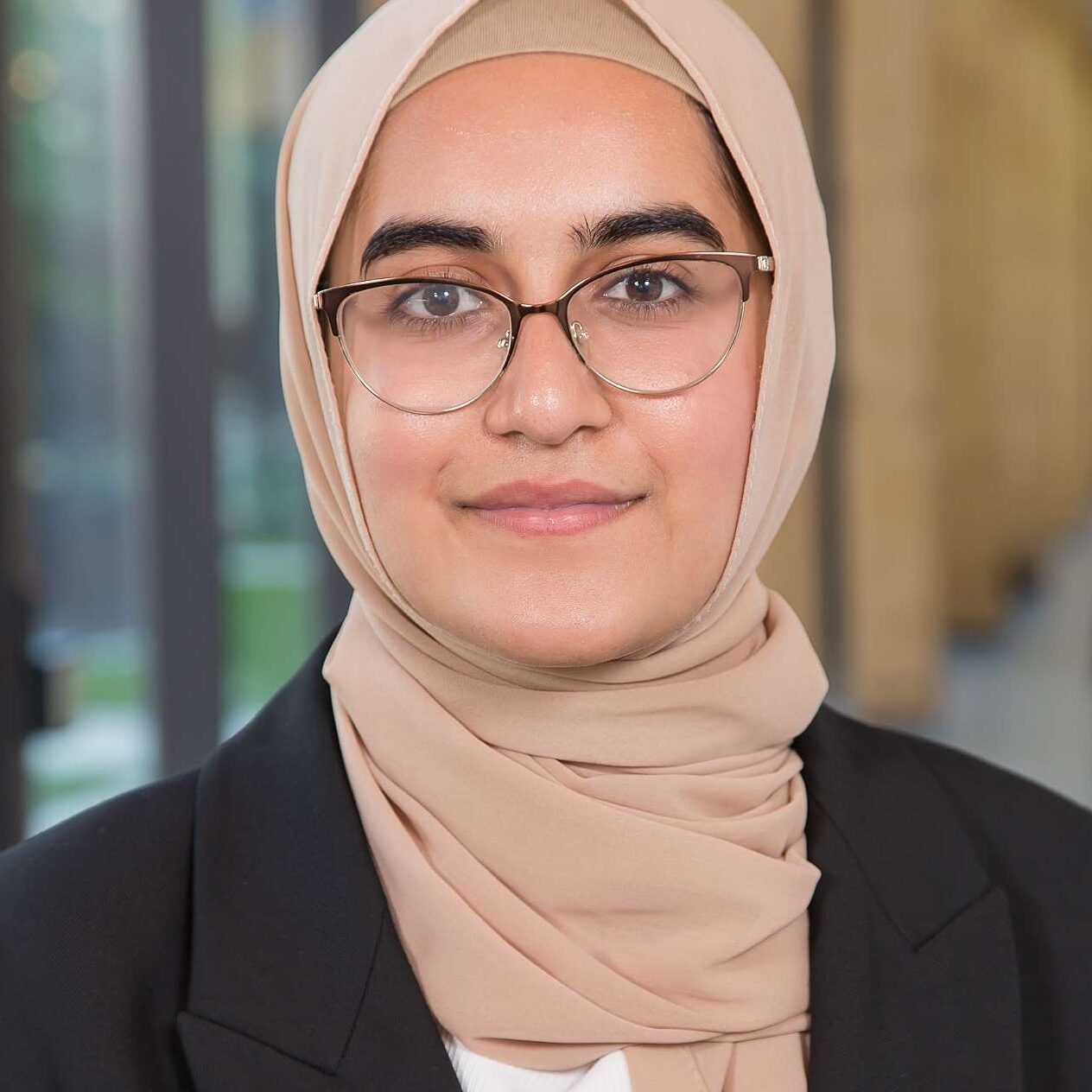
Laeba Khan
Laeba Khan is a Master of Global Governance (MAGG) candidate at the Balsillie School of International Affairs. Laeba's interest in food security and the role that women in the Global South play in global food chains grew after co-authoring a policy brief to be presented to Global Affairs Canada titled “Women Feeding Cities”. This project inspired Laeba’s focus for her Major Research Paper, where she will be exploring how the COVID-19 pandemic has impacted women in the informal food sector across cities in the Global South.

Adwoa Konadu-Yiadom
Adwoa Konadu-Yiadom is pursuing a Master’s degree in International Public Policy at the Balsillie School of International Affairs, with a specialization in Global Migration and Human Security. As a journalist, her interest in food security grew from observing how women in the informal food sector were negatively impacted by the Covid-19 pandemic. This realization came about during her interaction with women in various markets throughout Accra, Ghana, leading to her involvement in the Women Feeding Cities policy brief to be presented to Global Affairs Canada. Adwoa holds a bachelor’s degree in communication studies from Christian Service University College in Ghana and a Diploma in Development Journalism from the Indian Institute of Mass Communication in New Delhi-India.

Tashfia Rifa Zaman
Tashfia Rifa Zaman is a Master of Development Practice (MDP) student at the University of Waterloo’s School of Environment, Enterprise, and Development (SEED). As a development worker, she spends her time researching sustainable food supply chains and determining the significance of small and medium enterprise (SME) engagement in instilling nutrition in the private sector of emerging cities such as Dhaka, Bangladesh. She is assisting in the creation of an edited volume on South-South migration for Springer Nature as part of her graduate practicum.

Heba Hamzeh
Heba Hamzeh is pursuing a Master of International Public Policy (MIPP) degree at the Balsillie School of International Affairs (BSIA). Her extensive experience collaborating with various national and international humanitarian organizations in Syria has allowed her to gain valuable insights into the complexities of food security, particularly in the context of refugee and Internally Displaced Persons (IDPs) communities. Her work involved hands-on implementation and rigorous evaluation of development initiatives, fostering her commitment to driving positive change in vulnerable populations. Heba has co-authored a thought-provoking policy brief titled “Women Feeding Cities.” This research, which will be presented to Global Affairs Canada, delves into the crucial role women play in the informal food sector within the Global South.
